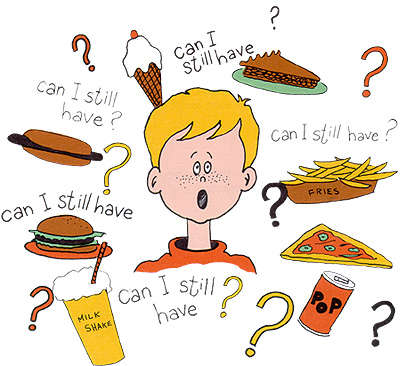Diet and Religion, how are they related spiritually?
Some religions require special diets for their members as shown below: (not shown are groups which require the vegetarian-diet, such as meditation methods, eastern philosophies (Hinduism, Sikhism, Taoism, Most Buddhism, Most Yoga’s, TM, Most guru-based movements, Hare-Krishna-movement, etc). The vegetarian-diet is also recommended by Christian denominations such as the Seventh-day Adventist Church, Mormons (eaten sparingly) and Quakers. Rastafarian and Bahai’s also promote the vegetarian-diet.
Here is a list of the diet and religion restrictions of the main spiritual movements; just a summary
- Halal food – permissible according to Islamic law. Muslim followers cannot consume the following :
- pork or pork by products
- animals that were dead prior to slaughtering
- animals not slaughtered properly or not slaughtered in the name of Allah
- blood and blood by products
- alcohol
- carnivorous animals
- birds of prey
- land animals without external ears
- Kosher /Kashrut – permissible according to Jewish law. Followers cannot consume the following :
- Unclean animals like pork, camels, hares or insects
- blood and blood by products
- birds of prey
- animals not killed in a kosher way (slaughtered in a special way)
- Injured or diseased animals
- During Ramadan(Islam) and Passover(Judaism) more restrictions apply
- Hindu‘s, Jain’s and many other Indian methods/religions fast regularly.
- In the Bahá’í faith, fasting is observed from sunrise to sunset from March 2nd to 20th
- Lent – Christianity; originally this period was very strict with complete abstinence from all animal products, later it was relaxed. Now the common practice during the 50 day period in the Roman Catholic Church, its traditional to abstain from meat from mammals and fowl on Ash Wednesday and every Friday for the duration of Lent, although fish and dairy products are still permitted. Although in the Eastern Orthodox Churches, abstinence from all animal products including fish, eggs, fowl and milk is still commonly practised, meaning only vegetarian (vegan) meals are consumed.
- Christianity – Interestingly enough, in the Old Testament it was also stated not to eat pork. Judaism, Christianity and Islam all have similar roots in the Old Testament, but somehow they have followed different doctrines.
- Some monks, especially Buddhist Vinaya only eat once per day before noon, to discipline the mind, help in meditation and improve health
- Some Catholic monastic orders such as the Carthusians and Cistercians follow a strict vegetarian diet
- Some Buddhists cannot consume onion, garlic or leeks at all; some are vegan for 2 days per month typically around full-moon. Some followers are so extreme they will not even eat in a vegan restaurant if any dish has onion or garlic.
For example, in the Christian bible; the old-testament is full of animal sacrifice but the new-testament is about compassion event stating not to eat meat with blood in it. So what do Jews and Christians do, make sure the blood is removed from the flesh prior to cooking (LOL). Of course its impossible to remove 100% of the blood unless all the meat is bleached like soiled diapers (nappy), but that does not stop them eating it.
When Buddha and Jesus were alive they taught their followers to be vegetarian, but those who could not commit completely were told to try a little by being veg a few days per month to instil compassion in their hearts and get them ready for the next phase in their consciousness-raising-evolution. But now it has become a watered-down ritual, even Christians rarely stop eating meat on Fridays or lent; like before.
Fundamentally, humans have put their palettes before their faith preferring to listen to their stomachs than hearts. The negative-force has manipulated the true teachings of past great masters into an easy-to-follow convenient way. Alas, the road to hell is wide but the path to Heaven narrow and difficult to tread. Regardless of how one justifies eating flesh according to protein/nutrition/economic-gain/jobs/etc, cultures have done without it for centuries. It is not needed, only desired.
Fasting was a means for those not pure enough to quickly remove negative energy from their system, like blood-letting was in olden-times to remove excess iron or blood-pressure. It was also a way to remove excess weight and strengthen the mind. On pilgrimages to see ones guru, abstaining from food was convenient allowing the practitioner to focus on God. Now it has become a ritual for the sake of the body.

